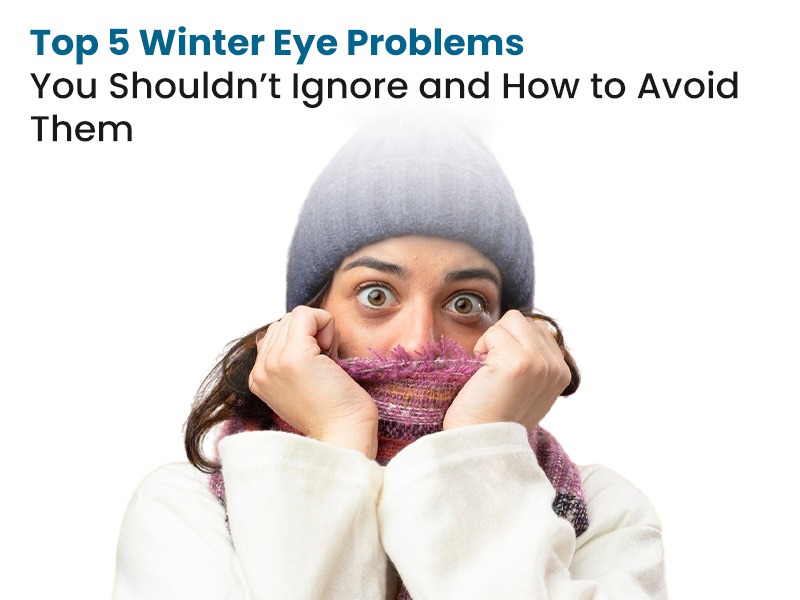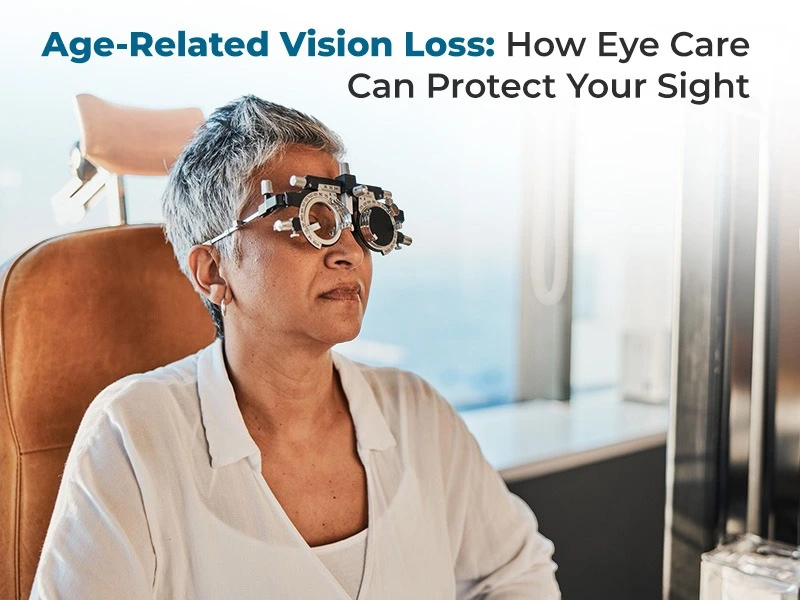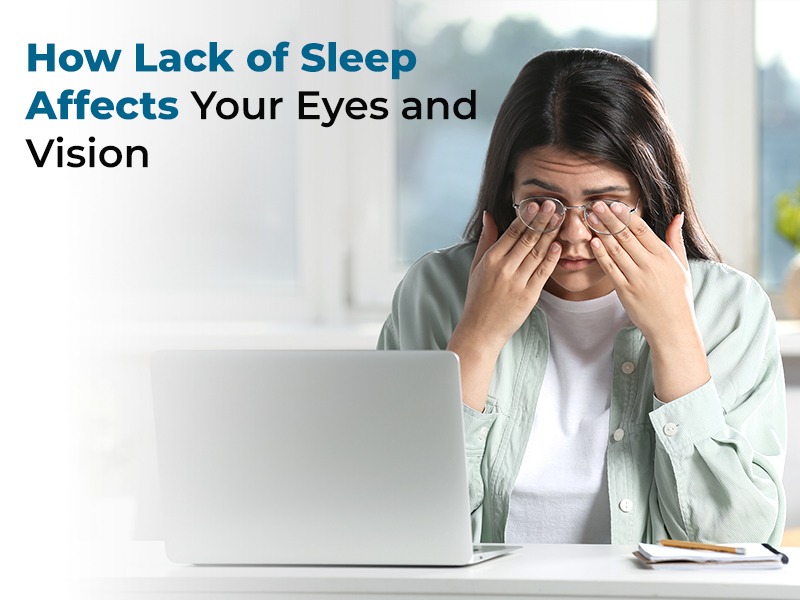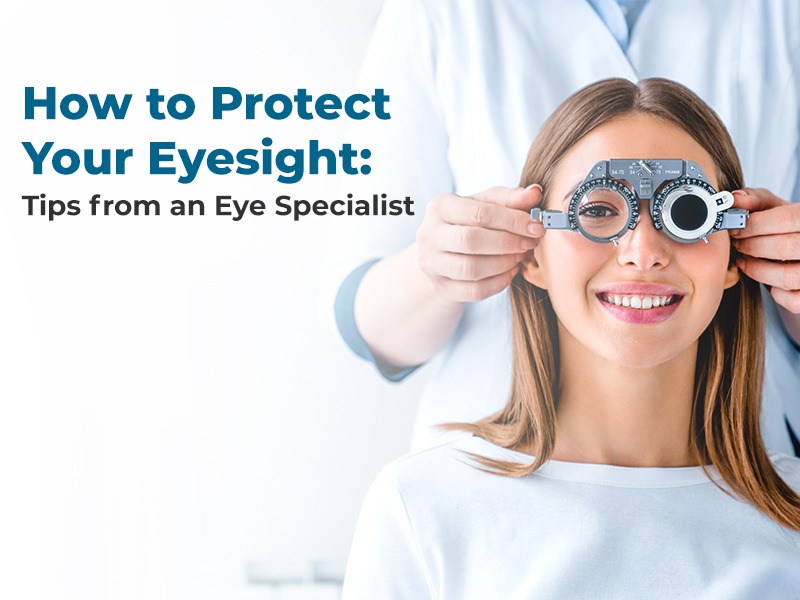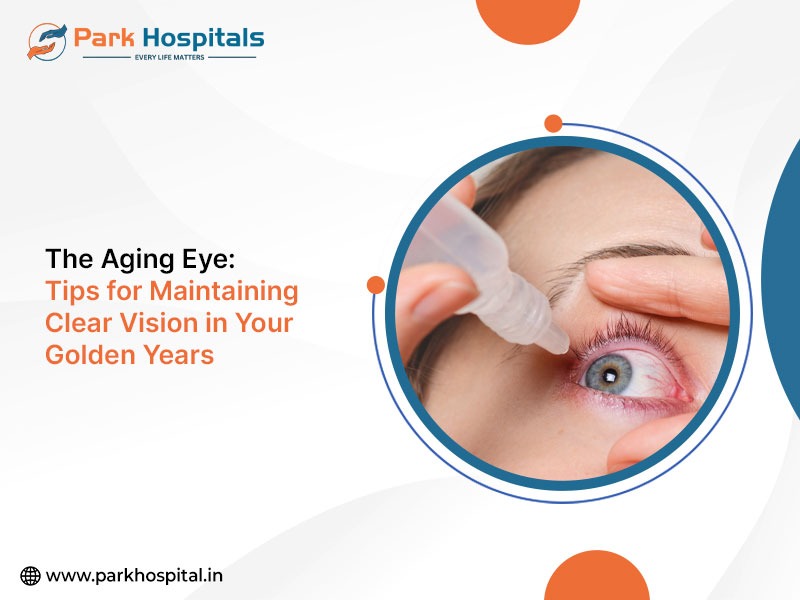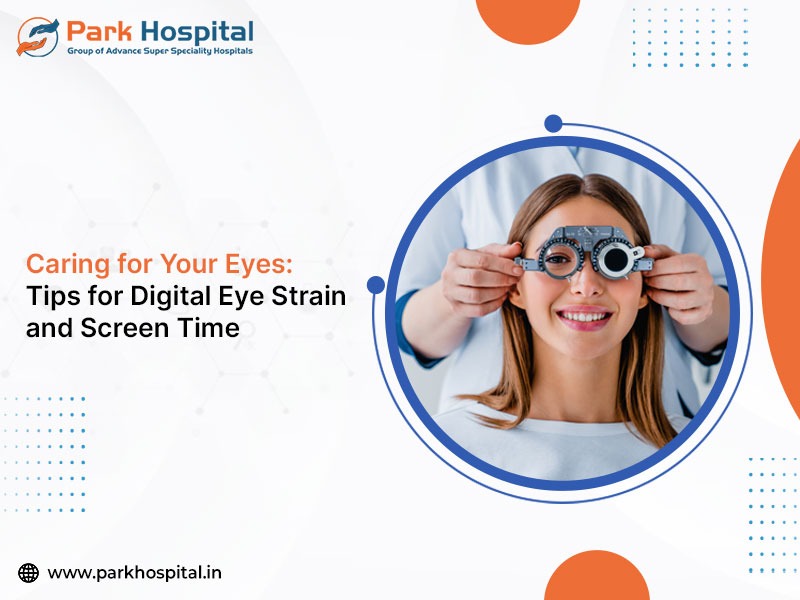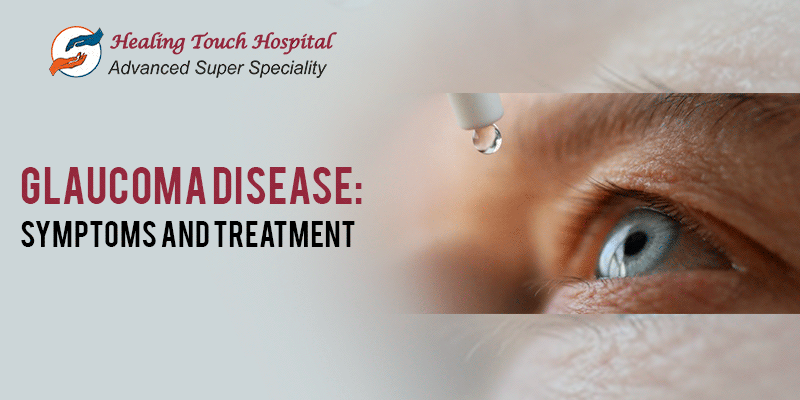Winter may be difficult on your eyes, with the colder months presenting specific risks to eye health. Seasonal patterns and dry air are two of many factors that might cause pain and serious eye problems. Maintaining good vision requires an understanding of these problems and how to resolve them. The best eyesight hospital in Delhi can provide you with individualised guidance and effective treatment if you are experiencing persistent symptoms. Let's take a look at the top 5 winter eye problems and the right tips to avoid them.
Top 5 Winter Eye Problems
Faded sunlight, fog, and low air moisture are some of the factors that impair vision and cause eye irritation. The following are a few of the common eye problems that people encounter during winter:
Dry Eyes
Dry eye symptoms include stinging, watery eyes, and sticky eyelids as you sleep. They also occur due to the chilly winter wind and indoor heating appliances. Untreated dry eyes can result in corneal ulcers, eye ball scratches, and vision loss.
Itchy Eyes
Cold weather can make your eyes itchy, making it harder to focus on your work. You would only want to rub your eyes vigorously, which may also lead to red eyes.
UV Damage
Snow reflection, especially in mountain regions, from the winter sun can cause eye damage and raise the risk of photokeratitis. Wear sunglasses to block UV rays, and reach out to the best eye specialist in Patiala to get the right advise.
Increased Chances of Infection
Cold, dry weather causes an increase in eye infections, notably conjunctivitis, which is very contagious. They can be caused by bacteria or viruses and appear as discharge, swelling, and redness.
Strained Eyes
Reduced natural sunshine and fog impair visibility, increasing eye strain and weariness, which can cause headaches. Dim lighting also worsens eye strain when using electronic gadgets or reading.
How to Protect Your Eyes This Winter?
Winter eyesight problems can easily be managed with a little effort. Follow the given list of eye care tips this winter:
Keep Your Eyes Moisturised: Dry eyes are common in winter because the air is so dry. Use artificial tears or lubricating eye drops to keep your eyes moisturised.
Stay Hydrated: Drinking about eight glasses of water a day will help you maintain moisture in your body and eyes, as recommended by the best eye specialist near Mohali.
Use a Humidifier: Using a humidifier in your bedroom or in other living areas keeps the air moist, which makes your eyes feel more comfortable and healthy.
Wear Sunglasses: Wear sunglasses that offer 100% UV protection to shield your eyes from the sun and from reflected light off surfaces like snow or ice.
Maintain Good Eye Hygiene: Wash your hands regularly, avoid touching your eyes with unwashed hands, and don’t share personal items like towels.
Avoid Rubbing Your Eyes: Rubbing your eyes can cause redness, irritation, and spread germs. Instead, try a warm compress or artificial tears to ease the urge.
Take Breaks: Follow the 20-20-20 rule for every 20 minutes to reduce screen time-related eye strain, which can cause dryness, itching, and discomfort.
See the best eye doctor in Jaipur if symptoms are persistent or severe.
Book your Consultation for an Effective Eye Care Solution!
Winter can pose special challenges for eye health. To enjoy the season without endangering your vision, follow the given safety tips and precautions. Search for eye care near me immediately if you feel discomfort or experience unusual symptoms. Additionally, if you have any eye problems, you should see a trustworthy ophthalmologist.
For all of your eye problems, Park Hospital has skilled ophthalmologists. Make an appointment with us today to feel the difference!
FAQs
What is the best way to protect eyes from cold winds?
The best method of protecting the eyes against cold winds is to apply protective eyewear like wrap-around sunglasses or goggles to form a physical barrier against the wind and UV rays.
How can I prevent dry eyes during winter?
Keep your eyes moisturised by using a humidifier indoors, staying hydrated by drinking plenty of water, and using artificial tears after consulting with your eye doctor.
Should I see an eye specialist for winter eye irritation?
Yes. If eye irritation continues or is accompanied by pain, blurriness, or discharge, you should immediately visit an eye care professional.
Can screen time make winter eye problems worse?
Yes. Screen time worsens winter eye issues because staring at screens reduces blinking, which can then aggravate dry eyes, leading to more strain, fatigue, and discomfort for the eyes.
What vitamins or foods help keep eyes healthy in winter?
To maintain optimal eye health during the winter season, eat foods rich in vitamins A, C, and E, Omega-3 fatty acids, and lutein, such as fatty fish, citrus fruits, nuts, and dark leafy greens.

